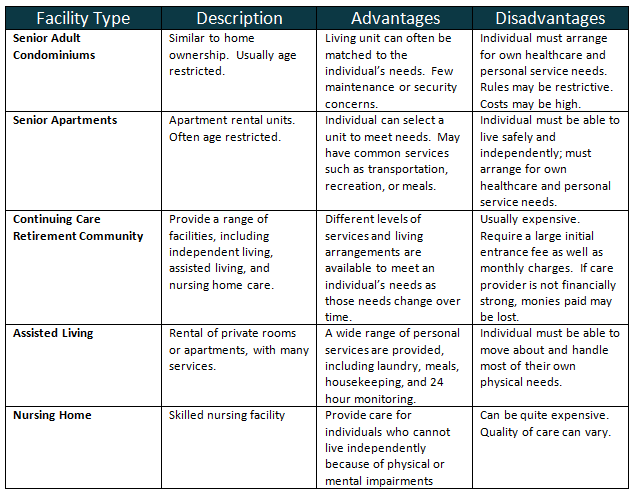
When the Parent Becomes the Child
Providing Care for Older Individuals
It should come as no surprise to anyone that we’re living longer.[1] Over the past century, medical science has defeated numerous diseases that once shortened the lives of many. These extra years are not without their problems; living longer allows people to come down with illnesses that, in years past, they would not have lived long enough to develop.
As a person ages, health problems can gradually become overwhelming, to the point where the individual is no longer capable of living independently or handling his or her personal affairs. Often, a child will then step in to “help out.” Gradually, a role reversal takes place in which the child becomes the parent and the parent becomes the child.
Planning Ahead – If Possible
If possible, planning ahead makes the process easier. A child who is taking over a parent’s situation will often be handed total responsibility for the parents’ well being. To the extent that the parent is able, he or she must be kept involved. Some key areas include:
- Finances: Managing the parent’s income, assets, and liabilities, paying the bills, and seeing that income tax returns are prepared.
- Medical: Understanding the parent’s medical situation and history, ensuring that needed medical care is provided, and dealing with required medication.
- Benefits: Making maximum use of any benefits that might be payable from former employers, Medicare, Medicaid, or the Veteran’s Administration.
- Key Documents: To carry out the parent’s wishes and legally act on the parent’s behalf, an adult child will need key documents such as wills, trust documents, a durable power of attorney for health care, a general power of attorney, and a “living will” or advance health care directive.
When to Intervene?
Very few of us want to intrude in our parents’ lives. It is only when we begin to notice certain “things” about Mom and Dad that we begin to consider stepping in. Problems such as memory loss, dementia, diminished sight or hearing, incontinence, and falling are signs it’s time to intervene. Two initial questions must be answered:
- What needs to be done? What is the appropriate level of care and/or type of living arrangement? Often, this question is answered in consultation with the parent’s physician or with the help of a geriatric care manager.
- Who will be in charge? This task frequently falls to the child who is the closest, geographically, to the area where the parent resides. Sometimes, younger family members may decide to share the responsibilities. In other instances, a child with special skills or aptitudes may be chosen.
Care and Housing Options

Preparing for the End
Even longer lives eventually end. The caregiver’s responsibilities in this final stage of life are just as important as in any other. One key goal is to honor the terms of the elderly individual’s advance health care directive. A “Do Not Resuscitate” order may be required, when even heroic medical efforts serve no real purpose. You may have to arrange for hospice care when death is near. Allowing the elderly the opportunity for a death with dignity is as important as caring for them when they are alive.
***
The opinions voiced in this material are for general information only and are not intended to provide specific advice or recommendations for any individual, nor intended to be a substitute for specific individualized tax or legal advice. We suggest that you discuss your specific situation with a qualified tax or legal advisor.
1-832296
[1] For example, a child born in the year 1900 had an average life expectancy of 47.3 years. However, for a child born in 2014, average life expectance had increased to 78.9 years. Source: National Vital Statistics Reports, Volume 66, Number 4 – United States Life Tables, 2014, Table 19. August 14, 2017.
